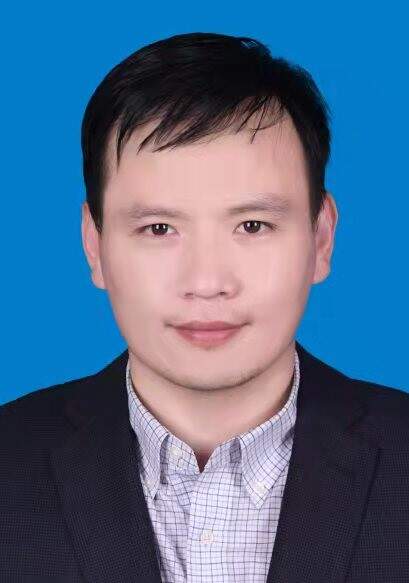2019/11-Present Xinjiang Technical Institute of Physics and Chemistry, Chinese Academy of Sciences, Associate Professor
2015/07-2019/10 Xinjiang Technical Institute of Physics and Chemistry, Chinese Academy of Sciences, Assistant Research Fellow
2010/09-2015.06 University of Chinese Academy of Sciences, Microelectronics and Solid-State Electronics, Ph. D. degree
2021 First Prize of Science and Technology Progress of Xinjiang Uygur Autonomous Region (3rd)
2020 Outstanding youth fund of Xinjiang Natural Science Foundation
Outstanding Scientific and Technological Worker of the 8th Chinese Institute of Electronics
[1] Zheng Qiwen, Cui Jiangwei, Yu Xuefeng, Li Yudong, Lu Wu, He Chengfa, and Guo Qi, “Impact of TID on Within-Wafer Variability of Radiation-Hardened SOI Wafers”, IEEE Transactions on Nuclear Science, 68(7): 1423-1429, 2021.
[2] Zheng Qiwen, Cui Jiangwei, Yu Xuefeng, Li Yudong, Lu Wu, He Chengfa, and Guo Qi, “Measurement and Evaluation of the Within-Wafer TID Response Variability on BOX Layer of SOI Technology”, IEEE Transactions on Nuclear Science, 68(10): 2516-2523, 2021.
[3] Zheng Qiwen, Cui Jiangwei, Xu Liewei, Ning Bingxu, Zhao Kai, Shen Mingjie, Yu Xuefeng, Lu Wu, He Chengfa, Ren Diyuan and Guo Qi, “Total Ionizing Dose Responses of Forward Body Bias Ultra-Thin Body and Buried Oxide FD-SOI Transistors”, IEEE Transactions on Nuclear Science, 66(4): 702-709, 2019.
[4] Zheng Qiwen, Cui Jiangwei, Lu Wu, Guo Hongxia, Liu Jie, Yu Xuefeng, Wang Liang, Liu Jiaqi, He Chengfa, Ren Diyuan, Yue Suge, Zhao Yuanfu and Guo Qi, “Total Ionizing Dose Influence on the Single-Event Multiple-Cell Upsets in 65-nm 6-T SRAM”, IEEE Transactions on Nuclear Science, 66(6): 892-898, 2019.
[5] Zheng Qiwen, Cui Jiangwei, Yu Xuefeng, Lu Wu, He Chengfa, Ma Teng, Zhao Jinghao, Ren Diyuan and Guo Qi, “Read Static Noise Margin Decrease of 65-nm 6-T SRAM Cell Induced by Total Ionizing Dose”, IEEE Transactions on Nuclear Science, 65(2): 691-697, 2018.
[6] Zheng Qiwen, Cui Jiangwei, Lu Wu, Guo Hongxia, Liu Jie, Yu Xuefeng, Wei Ying, Wang Liang, Liu Jiaqi, He Chengfa and Guo Qi, “The Increased Single-Event Upset Sensitivity of 65-nm DICE SRAM Induced by Total Ionizing Dose”, IEEE Transactions on Nuclear Science, 65(8): 1920-1927, 2018.
[7] Zheng Qiwen, Cui Jiangwei, Liu Mengxin, Zhou Hang, Liu Mohan, Wei Ying, Su Dandan, Ma Teng, Lu Wu, Yu Xuefeng, Guo Qi and He Chengfa, “Total Ionizing Dose Influence on the Single-Event Upset Sensitivity of 130-nm PD SOI SRAMs”, IEEE Transactions on Nuclear Science, 64(7): 1897-1904, 2017.
[8] Xi Shanxue, Zheng Qiwen, Lu Wu, Cui Jiangwei, Wei Ying and Guo Qi, “Modeling of TID-induced leakage current in ultra-deep submicron SOI NMOSFETs”, Microelectronics Journal, 102: 104829-1-8, 2020.
[9] Xi Shanxue, Zheng Qiwen, Wu Lu, Cui Jiangwei, Wei Ying, Wang Baoshun and Guo Qi, “The influence of channel width on total ionizing dose responses of the 130?nm H-gate partially depleted SOI NMOSFETs”, Radiation Effects and Defects in Solids, 175(5-6):1-8, 2020.
[1]Cui Jiangwei, Zheng Qiwen, Wei Ying, Sun Jing, Yu Xuefeng, Guo Qi, Lu Wu, he Chengfa, Ren Diyuan, A test method for the effect of total dose irradiation on the negative bias temperature instability of PMOSFET, zl201711329107.0
[2]Zheng Qiwen, Cui Jiangwei, Li Xiaolong, Wei Ying, Yu Xuefeng, Li Yudong, Guo Qi, A circuit level total dose radiation effect simulation method, ZL202011125626.7







